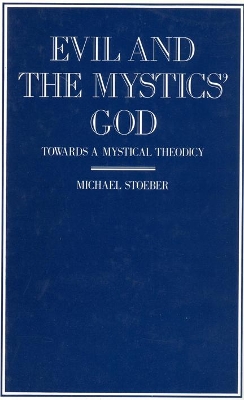Library of Philosophy and Religion
3 total works
In response to some of the current explanations of mystic phenomena, this book proposes an interpretive framework for understanding mysticism. It clarifies various kinds of mystical experiences, suggesting they are not wholly determined by subjective categories of interpretation, and illustrates how they can be synthesized in a theistic, mystic...Read more
In response to some of the current explanations of mystic phenomena, this book proposes an interpretive framework for understanding mysticism. It clarifies various kinds of mystical experiences, suggesting they are not wholly determined by subjective categories of interpretation, and illustrates how they can be synthesized in a theistic, mystic teleology. In reference to Ramanuja, Aurobinodo, Sankara, Eckhart, Ruusbroec and Boehme, monistic experiences are understood to culminate in higher theistic realizations, to which other kinds of mysticism can also be related.
Theodicies are systems of philosophy that attempt to rationalize the existence of evil in a God-centred world. They do not normally take into account the responses to evil by mystics, those who claim that truth can be attained by spiritual as well as by intellectual experience. Michael Stoeber analyses...Read more
Theodicies are systems of philosophy that attempt to rationalize the existence of evil in a God-centred world. They do not normally take into account the responses to evil by mystics, those who claim that truth can be attained by spiritual as well as by intellectual experience. Michael Stoeber analyses the contribution that mystical thought makes to establishing a reliable theodicy. Among the authors whose works he discusses are Dostoevsky, Leibniz, Voltaire, Hume, Kant, Meister Eckhart and Evelyn Underhill.The problem of evil is given an effective religious explanation only by arguing that evil is necessary in fulfilling some divine telos or purpose. But the best non-mystical teleological responses possess serious defects, difficulties which are overcome in theology that proposes a mystical telos. This teleology involves evidence which justifies theodicy, as well as a strong pastoral thrust. Moreover, it explains the impulse to evil in human natural in terms of a divine theogonic process which distances God from evil and accounts for evils which do not serve the mystical telos through the doctrine of soul-making rebirth.
Stoeber holds that mystical theodicy provides a coherent and cogent response to the problem of evil.
Stoeber holds that mystical theodicy provides a coherent and cogent response to the problem of evil.

